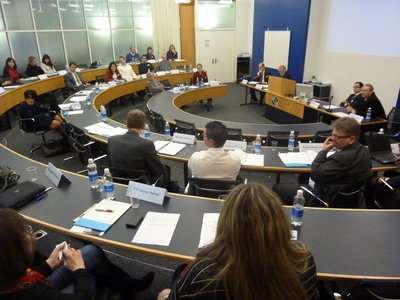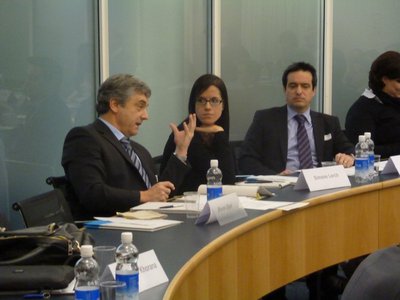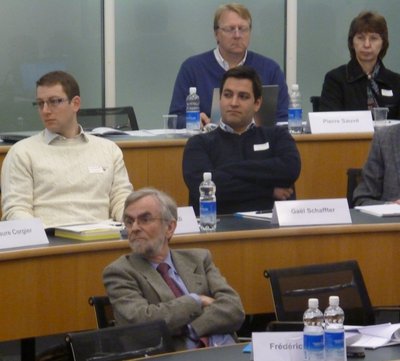22 Jan 2013
The GPA, Transparency Requirements and the Fight Against Bid-Rigging and Collusion
On 11 January 2013, the World Trade Institute and the NCCR Trade Regulation offered an open forum for representatives of the Swiss procurement profession.
Government representatives, members of international bodies and academic experts met to discuss the acquisition of goods and services – such as pharmaceutical drugs, power generation, hearing aids and construction – and how to locally implement 2012 revisions to the World Trade Organization’s Agreement on Government Procurement (GPA). The Agreement includes setting rules to guarantee fair and non-discriminatory conditions of international competition, making it easier for Swiss industries to sell their products and services to foreign governments at competitive prices and for taxpayers in these countries to obtain the fairest price possible for goods or services they purchase from Switzerland. Typically accounting for 15-20% of Gross Domestic Product, public procurement is crucial to the economic system of a state.
In their opening remarks, Professor Thomas Cottier, Managing Director, World Trade Institute (WTI) and Dr Susan Brown, Scientific Coordinator & Sr. Research Fellow Swiss National Centre of Competence in Research (NCCR) Trade Regulation outlined that Swiss procurement legislation does not currently contain a general rule allowing conviction for bribery as grounds for exclusion from competition for public contracts. They asked speakers to share their thoughts on how implementation of the 2012 GPA revisions might change this, as well as whether there could be other measures taken against collusion and corruption in public procurement stemming from the new Swiss regime.
Although they presented their thoughts from a variety of perspectives, expert panellists from the World Trade Organization, the Swiss federal government, a cantonal government, the city of Zurich, the OECD, the WTI, the University of Hull and the University of Zurich all agreed on a need for a degree of transparency (sharing information on contract opportunities, setting rules for the process, making and enforcing decisions) in preventing bid-rigging and collusive tendering.
At the same time, the speakers outlined that in certain cases fixed rules around maintaining transparency could result in the exchange of commercially sensitive information, which could enable companies to align their bidding strategies and thereby unintentionally support bid-rigging. In the words of panellist Frédéric Jenny, Chair, OECD Competition Committee, “transparency may also make a procurement procedure predictable, which can further assist collusion”.
As further recommendations, the speakers cited a need for public education, for informing authorities when confronted with a case of bid-rigging and even for heavy fines or jail sentences for proven cases was addressed by the panellists. Several panellists outlined concrete mechanisms for improving the overall integrity of the public procurement process: engaging in electronic procurement, issuing certificates of independent bid determination, educating public officials, businesses and civil society, adopting data analysis tools, introducing specialised review mechanisms for public contract awards and auditing public procurement procedures.





